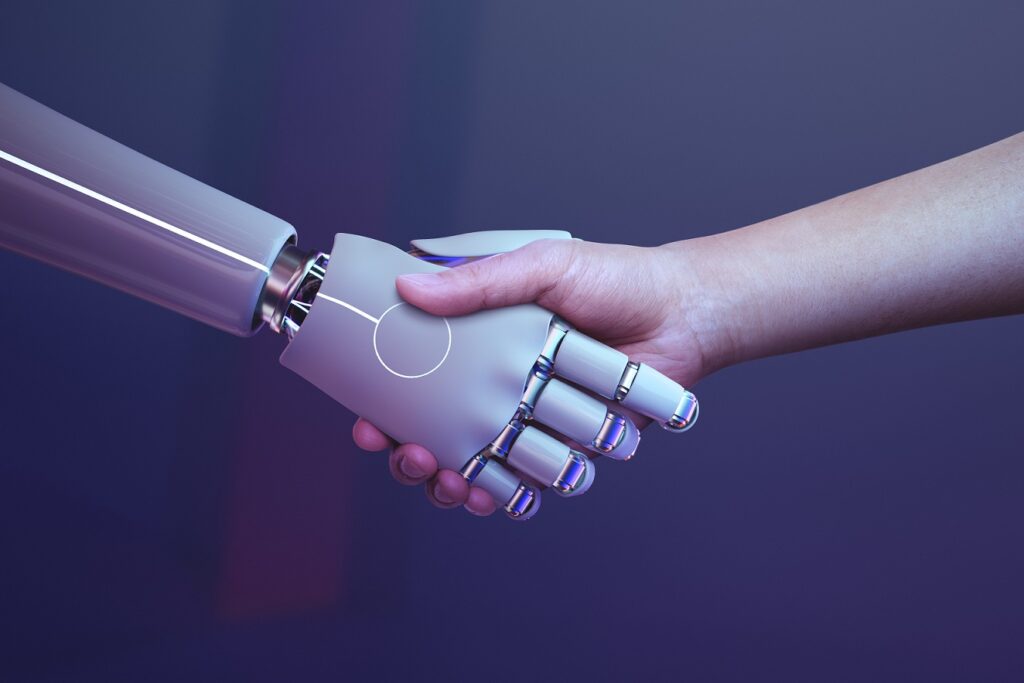Quick search
CTRL+K
Quick search
CTRL+K


Since 2010, the Global Law Experts annual awards have been celebrating excellence, innovation and performance across the legal communities from around the world.
posted 3 months ago
What is Generative AI
Generative AI, or generative artificial intelligence, is a type of AI that can create new content and ideas, such as text, images, videos, music, and more. It works by learning patterns and structures from existing data and then using that knowledge to generate new content that has similar characteristics. For example, it can be used to create chatbots for customer service, generate realistic images, write text like emails or resumes, and even suggest new ideas for product development. Generative AI is like a creative assistant that can help businesses and individuals come up with new and innovative content, making tasks easier and more efficient.
What benefits of using Generative AI are
Generative AI therefore offers a multitude of advantages for companies, encompassing increased efficiency by automating tasks that would otherwise demand manual labor, enhanced quality of generated content, quicker results compared to manual labor, cost savings, improved decision-making, heightened creativity, and enhanced customer experience through personalization.
In terms of intellectual property (IP) rights and content creation, Generative AI presents a myriad of potential benefits for companies. Firstly, organizations can leverage generative AI to develop custom models trained on their own institutional knowledge and intellectual property, allowing seamless collaboration between knowledge workers and the software in a familiar language. Moreover, generative AI empowers businesses to scale up their creative output, automatically producing captivating ad copy, visuals, and video content, thus reducing the need for extensive manual creative work. This not only enhances creativity but also leads to significant time and cost savings, streamlining content creation processes and reducing the resources required for manual content generation. Additionally, generative AI can augment workers’ abilities to draft, edit, and classify content, thereby optimizing talent within the organization. Furthermore, as a company’s AI maturity grows, generative AI can open new revenue channels, contributing to overall growth and innovation. However, it is crucial for companies to navigate the legal implications and ensure compliance with IP laws when integrating generative AI into their content creation and innovation processes.
Generative AI and Intellectual Property (IP) Issues
Generative AI, which uses data lakes and question snippets to recover patterns and relationships, is becoming more prevalent in creative industries. However, the legal implications of using generative AI are still unclear, particularly in relation to copyright infringement, ownership of AI-generated works, and unlicensed content in training data. Courts are currently trying to establish how intellectual property laws should be applied to generative AI, and several cases have already been filed around the globe.
While courts and lawmakers in various countries grapple with complex cases blurring the lines between human and machine creation, the EU is on the verge of implementing the world’s first comprehensive law on artificial intelligence. The EU Artificial Intelligence Act aims to regulate the use of AI in the EU to ensure better conditions for its development and use. It covers AI systems placed on the market, put into service, or used in the EU, including those offered by global vendors to EU users. The Act categorizes AI systems into three risk categories and imposes specific legal requirements on high-risk applications. AI systems posing unacceptable risks, such as those considered a threat to people, are banned. As for Thailand, she is catching up with EU. Government agencies are developing draft legislations to government AI. Soon we will see what they are.
In a separate development, the Beijing Internet Court made a landmark ruling endorsing copyrights for AI-generated artwork. This decision contrasts with recent USPTO rulings, which did not uphold copyrights for AI-generated creations. The ruling sets a legal precedent that could encourage more innovation and exploration in this field, acknowledging the potential of AI in creative industries and emphasizing the need to view such creations on a case-by-case basis, considering the unique blend of AI and human input. [Source: Judgment of the first case of copyright infringement of AI-generated images (qq.com)]
Amidst the rapid advancement of generative AI technology, a narrative unfolds with key intellectual property (IP) issues at its core.
Copyright Infringement: Within the intricate web of generative AI lies a concern regarding copyright infringement and rights of use. The uncertain ownership of AI-generated works further complicates matters, raising questions about the presence of unlicensed content in training data. As courts grapple with the application of intellectual property laws to Generative AI, the landscape remains nebulous, awaiting clarity.
Ownership of AI-Generated Works: The heart of the debate revolves around the ownership of AI-generated content. A palpable uncertainty looms, highlighting a significant concern for policymakers. As stakeholders navigate this uncharted territory, the quest for clarity on ownership rights intensifies, shaping the trajectory of IP discourse.
Patenting AI-Generated Inventions: In the realm of AI-generated art and inventions, a hostile legal landscape awaits. Amidst diverging perspectives, suggestions emerge to future-proof the patent system by carving out a distinct category dubbed AI-IP. With proposed patents potentially lasting for shorter durations than their traditional counterparts, the quest for equilibrium between innovation and protection unfolds.
Judicial Understanding and Interpretation: As generative AI blurs the boundaries between human and machine creation, judges find themselves embroiled in complex cases. Navigating this terrain demands a profound understanding of both IP laws and the intricacies of AI systems. The evolving narrative underscores the imperative for judicial actors to deepen their understanding of AI-related issues, shaping the contours of legal interpretation.
Disclosure and Representation: Beneath the surface of AI-generated output lies a concern regarding its representation. The ethical imperative of honest disclosure weighs heavily, challenging users to navigate the Copyright Office’s requirements diligently. As the narrative unfolds, the need for transparency in representing AI-generated content as distinct from human creation becomes increasingly apparent, shaping the discourse surrounding disclosure and representation.
In this narrative, the evolving landscape of generative AI intertwines with key IP issues, painting a complex portrait of technological innovation and legal intricacies. As stakeholders navigate this dynamic terrain, the narrative unfolds, illuminating the path forward in the pursuit of balance between innovation and protection in the digital age.
Author


There are no results matching your search.
Resetposted 1 hour ago
posted 13 hours ago
posted 13 hours ago
posted 3 days ago
posted 4 days ago
posted 4 days ago
posted 4 days ago
posted 4 days ago
posted 4 days ago
posted 7 days ago
There are no results matching your search.
ResetFind the right Legal Expert for your business
Sign up for the latest legal briefings and news within Global Law Experts’ community, as well as a whole host of features, editorial and conference updates direct to your email inbox.
Naturally you can unsubscribe at any time.
Global Law Experts is dedicated to providing exceptional legal services to clients around the world. With a vast network of highly skilled and experienced lawyers, we are committed to delivering innovative and tailored solutions to meet the diverse needs of our clients in various jurisdictions.